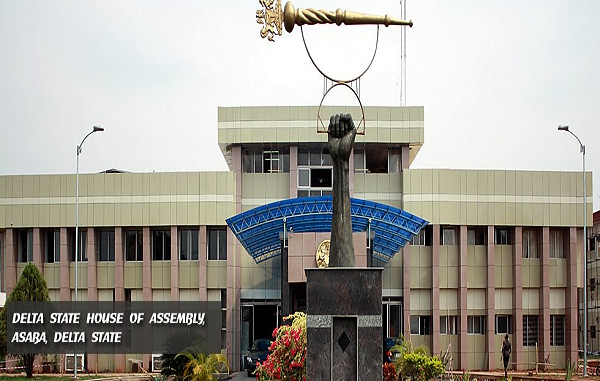POISED to minimize crime and criminalities in Delta State, the State House of Assembly (DTHA) passed the new Delta State Security Corps Agency Bill 2025, Tuesday, July 22, 2025, repealing its predecessor, the Delta State Community Security Agency Bill 2020. The new bill sponsored by Hon. Isaac Anwuzia, representing Aniocha South Constituency, and 27 other legislators, targets funding of the local security system, a variable over which the repealed law was silent. The Speaker, Rt. Hon. Dennis Guwor, presided over the plenary that gave birth to the historic piece of legislation.
Before now, community security, also known as local vigilantes, had been based on volunteer work by able bodied young men and women taking up the challenging task of protecting the lives and properties of their indigenes without any formal payment or motivation. Theirs was a crisp definition of sacrificial service, but it had its limitations including demotivation over time. In fact, this weakened the repealed law and made it ineffective.
Under the old law, the local vigilante operatives faced the danger of combating heavily armed Fulani herdsmen grazing their cattle on crop farms all over the state; contending with visibly armed kidnappers who had made the act a quick money-making enterprise; and checking petty crimes in their immediate domains. In all of the above, the criminals took pleasure in violating single and married women. These were well coordinated crimes against the state and its indigenes. Unfortunately, the statutory security agencies had little or no effective response to them because they were outnumbered in terms of personnel and sophistication of operational tools.
Evidently, the Security Corps Agency Bill 2025 is a strategic and practical response to the yearnings of a seemingly helpless people, faced with huge security threats that had led to the death of hundreds of indigenes and loss of valuable properties, for protection. As provided for in the 1999 Constitution of the Federal Republic of Nigeria, as amended, at Section 14, “the security and welfare of the people shall be the primary purpose of government.”
We commend the DTHA for the urgency with which the bill was passed, hoping that excited Governor Sheriff Oborevwori would give speedy assent to the bill, making a law that would quicken his mission to make Delta State safer than ever. His imprint on the socioeconomic development of the state is massive, clearly, and the agenda of faster industrialization of the state would significantly be enhanced with the law firmly in place.
Unveiling critical elements of the bill, the chief sponsor, Hon. Anwuzia said the bill provides that personnel of the security corps would be placed on grade level 05 as in the public service of the state; that the operatives would be hired on the basis of 30 persons per ward in the 25 local government areas of the state; that they would be recruited by stakeholders, traditional rulers and religious leaders from their immediate environment, and that they would be trained by the Commissioner of Police and Director, State Security Service (DSS).
Other strategic provisions are that the community security operatives would operate under the supervision of the various Divisional Police Officers; that the local government councils would contribute three percent of the budget to fund the scheme; and that chairmen of the local government councils would serve on the board of the Security Corps Agency. There is also room for some members of existing community vigilante groups to be absorbed into the security corps as envisaged under the new arrangement.
With the legislative framework for a more effective community policing of the state in place, just awaiting the Governor’s assent, it is crucial to caution the potential personnel to beware of pitfalls that lie ahead, namely extortion of the public; embracing bribery; colluding with criminal elements; perpetrating and perpetuating crime; and being used as tools to settle scores or oppress vulnerable persons. These certainly would be antithetical to the objectives and values of the security corps.
As they execute their mandate, they should be fair to all, ensure that justice is done, abiding by the rule of law, ensure peace and order at all times. We urge members of the various communities in the state to provide the security corps timely intelligence for efficient discharge of their mandate. Again, we applaud the DTHA for the speedy passage of the bill.


